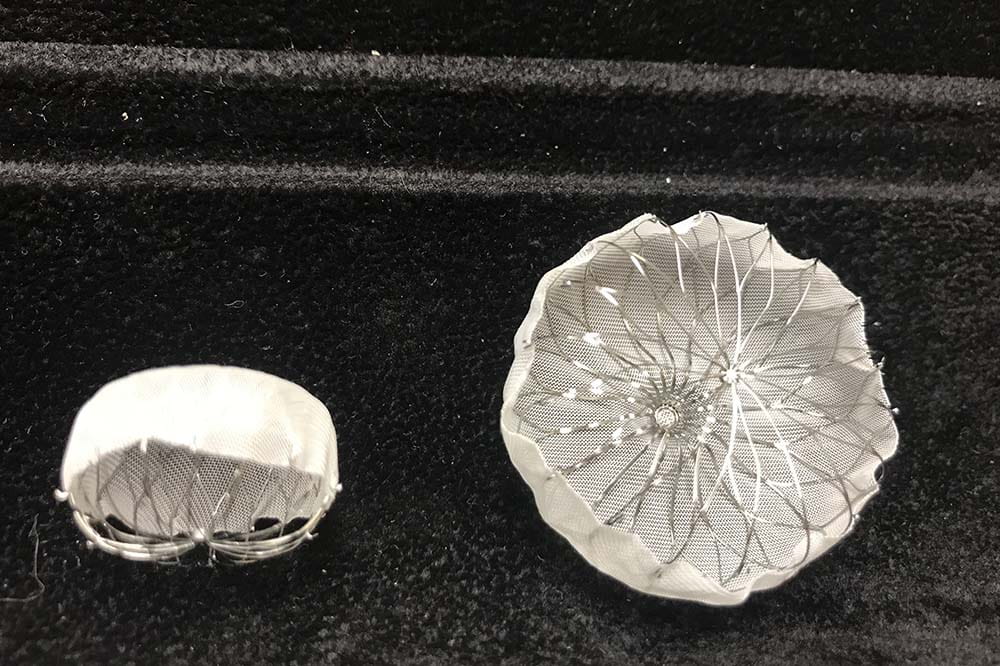Doctors at MUSC Health Columbia Medical Center Downtown have their 800th WATCHMAN, a device that can prevent strokes in patients with an irregular heart rhythm known as atrial fibrillation.
“This milestone is a cause for celebration,” said L. Garrison Morgan, MD, PhD, who leads the Structural Heart Disease Program and is associate director of the Claude W. Smith School of Cardiovascular Technology at MUSC Health in Columbia.
“We’re a high-throughput center that does exceptionally good work and has very good outcomes. The more of these procedures you do, the better you are. We’re at a point now where we can put the entire device in place in about 15 minutes. And patients only have to be on bed rest for about two hours and then they can go home,” Morgan said.

He explained what happens in people with atrial fibrillation. “The problem is the basic rhythm in the patient’s heart, called atrial fibrillation. It causes the upper chambers of the heart to quiver instead of contracting to pump the blood around in that upper chamber. It just so happens that that upper chamber on the left side of the heart, the side that pumps to the brain, has a little pocket called the left atrial appendage. It creates a vortex where the fluid just swirls around, and it can form a blood clot. And 90% of all strokes in patients with atrial fibrillation originate from a blood clot in that little appendage.”
For years, blood thinners have been the drug of choice to prevent these blood clots. Blood thinners are very good at preventing blood clots that cause strokes, but they’re also very good at preventing blood clots that stop bleeding. And so they cause patients to bleed easily, which can be a problem for patients who are unsteady and fall frequently or have a history of bleeding problems, Morgan explained.
The WATCHMAN solves that problem, he said. It’s basically a little plug. “It sits in the opening of that little pocket in the upper chamber of the heart and closes that pocket forever. So there’s no pocket. There’s no place for a blood clot to form. And if there’s no place for a blood clot to form, there’s no reason for patients to be on blood thinners. So this little device protects them from stroke for the rest of their lives, just like their blood thinner does, and they never take a blood thinner again.”
He said WATCHMAN will hopefully evolve from a mainstream procedure to the gold standard in atrial fibrillation. “There are clinical trials that we have been involved in and are currently completing. They essentially offer patients the opportunity to use a WATCHMAN device as a first-line therapy. It’s very safe. It’s effective. It’s fast. And it offers the patient lifelong stroke prevention with a simple procedure.”
Morgan said there are risks associated with any heart procedure and that patients should talk to their doctor about those risks and compare them with the benefits of stopping blood thinners. But he also said the risk of complications from a procedure to close blood vessels is “extremely small.”
In his experience, Watchmen implantation procedures tend to go extremely smoothly. “In fact, over the last six years, we’ve had a 99.5% success rate with the implants and there have been no major complications at all.”
What’s next? His team has a new goal, with a deadline of next summer. “We want to be the first program in South Carolina to perform 1,000 implants.”

